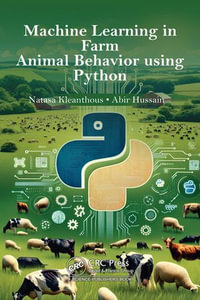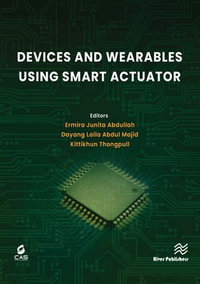
eTEXT
Human Performance in Automated and Autonomous Systems
Current Theory and Methods
By: Author
eText | 19 September 2019 | Edition Number 1
At a Glance
eText
$302.50
Instant online reading in your Booktopia eTextbook Library *
Read online on
Not downloadable to your eReader or an app
Why choose an eTextbook?
Instant Access *
Purchase and read your book immediately
Read Aloud
Listen and follow along as Bookshelf reads to you
Study Tools
Built-in study tools like highlights and more
* eTextbooks are not downloadable to your eReader or an app and can be accessed via web browsers only. You must be connected to the internet and have no technical issues with your device or browser that could prevent the eTextbook from operating.
This book examines recent advances in theories, models, and methods relevant to automated and autonomous systems. The following chapters provide perspectives on modern autonomous systems, such as self-driving cars and unmanned aerial systems, directly from the professionals working with and studying them. Current theories surrounding topics such as vigilance, trust, and fatigue are examined throughout as predictors of human performance in the operation of automated systems.
The challenges related to attention and effort in autonomous vehicles described within give credence to still-developing methods of training and selecting operators of such unmanned systems. The book further recognizes the need for human-centered approaches to design; a carefully crafted automated technology that places the "human user" in the center of that design process*.*
Features
- Combines scientific theories with real-world applications where automated technologies are implemented
- Disseminates new understanding as to how automation is now transitioning to autonomy
- Highlights the role of individual and team characteristics in the piloting of unmanned systems and how models of human performance are applied in system design
- Discusses methods for selecting and training individuals to succeed in an age of increasingly complex human-machine systems
- Provides explicit benchmark comparisons of progress across the last few decades, and identifies future prognostications and the constraints that impinge upon these lines of progress
Human Performance in Automated and Autonomous Systems: Current Theory and Methods illustrates the modern scientific theories and methods to be applied in real-world automated technologies.
Read online on
ISBN: 9780429857416
ISBN-10: 0429857411
Published: 19th September 2019
Format: ePUB
Language: English
Publisher: Taylor & Francis
Edition Number: 1
You Can Find This eBook In
This product is categorised by
- Non-FictionComputing & I.T.Computer ScienceHuman-Computer Interaction
- Non-FictionPsychologyOccupational & Industrial Psychology
- Non-FictionEngineering & TechnologyEnergy Technology & EngineeringElectrical Engineering
- Non-FictionEngineering & TechnologyTechnology in GeneralEngineering in General
- Non-FictionIndustry & Industrial StudiesIndustrial Relations, Health & SafetyHealth & Safety Issues
- Non-FictionEngineering & TechnologyElectronics & Communications EngineeringElectronics EngineeringAutomatic Control Engineering
- Non-FictionEngineering & TechnologyEnvironmental Science
- Non-FictionEngineering & TechnologyTechnology in GeneralTechnical DesignErgonomics























